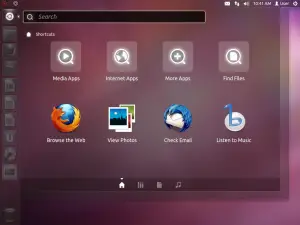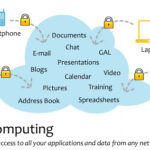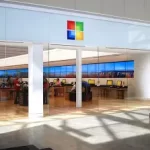 Windows vs Linux OS
Windows vs Linux OS
First, the most crucial difference between Windows and Linux OS is the overall business model, with Windows being a massively profitable proprietary venture by Microsoft and Linux a community-driven project that is free and open source.
This isn’t to say that no Linux developers make any money at all, as some generate revenue through support and consulting, premium applications and even fundraising and donations.
Most, however, volunteer their time and coding in order to contribute to a community project and help society. Microsoft, on the other hand, has generated enormous revenue for many years and evolved to meet the needs of the commercial market.
This core difference affects the two operating systems in a number of ways. In addition to being free, Linux benefits from zero software licensing and no fees for upgrading to a new version. Windows 7, on the other hand, costs over $100, upgrades also carry a hefty price tag, and many core software programs are also expensive (roughly $150 for Office Home 2010, for example)
Of course, due to many deals Microsoft has in place with computer and software companies, the Windows 7 OS will come installed on a new computer, and often so will many software programs such as Office. But these costs are a big deal for those running older hardware or building computers from scratch, which affects a variety of types of user communities.
Security Concerns and Vulnerabilities for Operating Systems
Another key difference caused by the commercial vs. open source nature of the operating systems relates to security. Windows has grown into a much more complex operating system, so it has more potential flaws that hackers and spammers can exploit. Linux is not only more streamlined, it is also easier for the community to spot potential vulnerabilities because the code is free for anyone to inspect and fix if needed.
Perhaps the most important point on security, however, is the fact that the number of people using Windows is staggeringly higher than those who use Linux, so malicious programmers invest much more time and resources into exploiting flaws and creating viruses, trojans and spyware for Windows. In addition, Linux’s more streamlined nature makes is less susceptible to crashes and freezes.
The Ideal User for Both Windows and Linux OS
The fact that most new computers except for Macs ship with Windows installed makes it more appropriate for computer novices. In fact, some users do not even realize the difference between a computer and an operating system, thinking that Windows 7 is the only possibility for their system.
This makes Linux a choice only for users with a bit more technical savvy and the initiative to install it from the web or from an external disk. Windows 7 has a familiar GUI, which appears a bit more flashy and aesthetically impressive than Linux.[1] There are also GUIs for just about everything with Windows 7, while in Linux some tasks that need to be completed on the command line interface.
There are a couple of options to modify the look of Windows 7, such as dragging icons and files to various places on the desktop and changing the background, but Linux takes it much further. The possibilities of customization are practically endless, as there are entirely different distributions such as Ubuntu, and also many ways to tweak them to your liking.
There are many wallpapers a click away in the Appearance menu, instead of having to navigate the somewhat labyrinthine Control Panel in Windows 7. In addition, Linux allows you to choose the theme used for the UI and change icons, install new system fonts or even a dock with the help of various websites.
You can even set up multiple desktop environments and choose from them at startup. For all of the software available for Windows 7, there is not much available to customize the look of your desktop environment. To underscore the customization powers of Linux, there is even a transformation pack which can make Ubuntu look very similar to Windows 7.[2]
In addition, Linux can be installed on many older systems that are not compatible with Windows 7, and many studies have found Linux to be less CPU intensive than Windows, and that it uses less power. While there are a variety of factors complicating this conclusion, the fact that much more can be done from the command line certainly does save power and use fewer system resources.
To a casual user who is not overly attached to one particular OS or suite of software programs, however, Windows 7 and Linux would appear very similar. They both have things like clickable icons to launch programs and processes, a customizable desktop background, and software available to do most major tasks. (Although commercial vs. open source software is a major difference, Windows users almost always have the option of installing an open source version online instead of purchasing.)
In many cases, it is a user’s familiarity with a particular operating system that determines his or her satisfaction; not necessarily the features it has.
What operating system do you prefer, and why? Do you support open source projects?




Leave a Reply